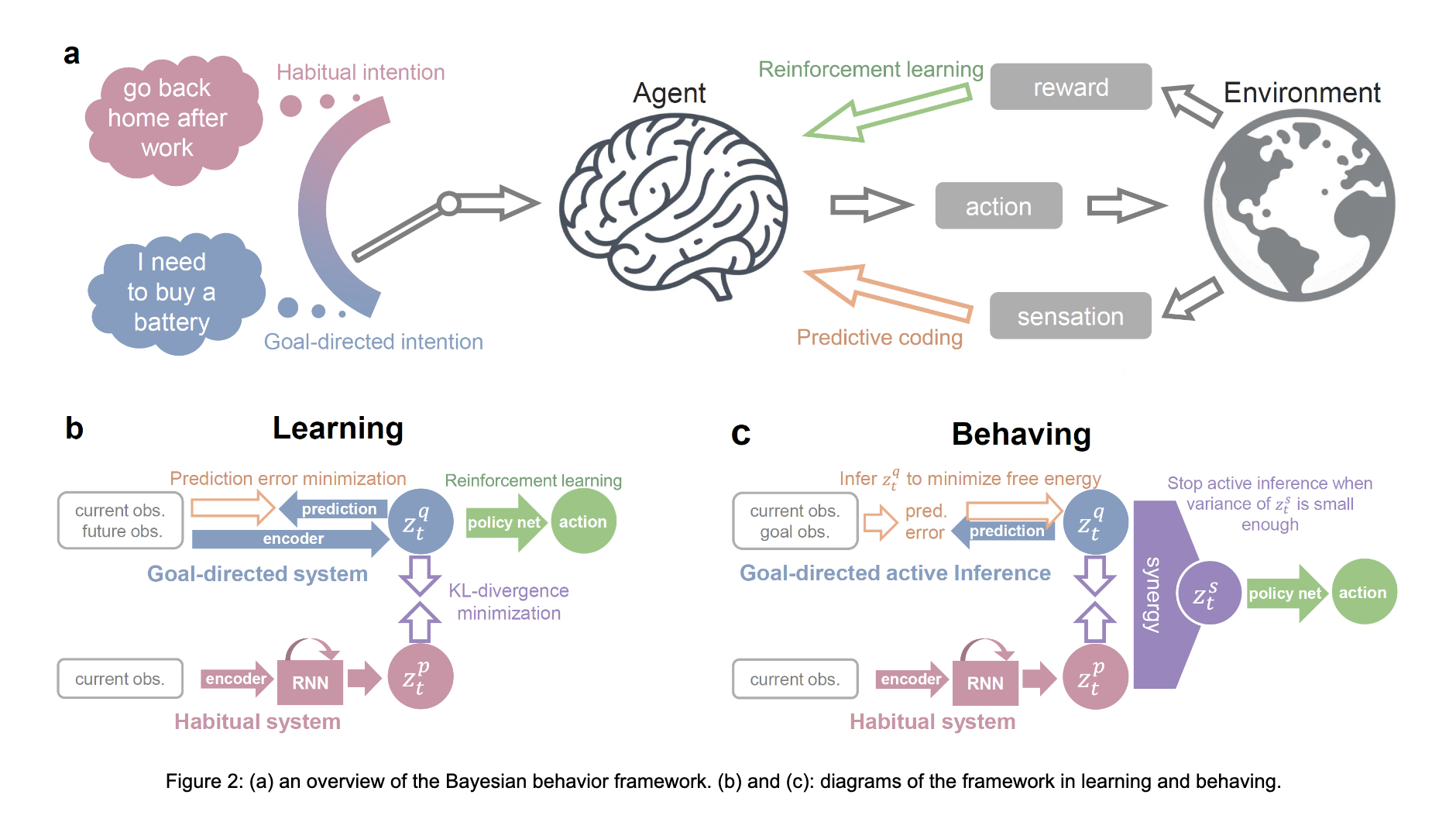
Microsoft Researchers Introduce a Theoretical Framework Using Variational Bayesian Theory Incorporating a Bayesian Intention Variable
Practical Solutions and Value
In decision-making, habitual behavior and goal-directed behavior have been traditionally seen as separate. Microsoft researchers introduce a framework to unify these behaviors, enhancing decision-making efficiency and adaptability in both biological and artificial agents.
The Bayesian behavior framework addresses the traditional division between habitual and goal-directed behaviors, leveraging variational Bayesian methods to synergize these two behavior types. This allows for a seamless transition and interaction between the two behavior types, enhancing decision-making processes.
The framework was tested in vision-based sensorimotor tasks within a T-maze environment, yielding significant observations such as the transition from goal-directed to habitual behavior, resilience in habitual behaviors, and zero-shot goal-directed planning.
This innovative approach not only bridges the gap between habitual and goal-directed behaviors but also enhances the efficiency and adaptability of decision-making processes in both biological and artificial agents.
AI Solutions for Business Evolution
Discover how AI can redefine your way of work:
- Identify Automation Opportunities: Locate key customer interaction points that can benefit from AI.
- Define KPIs: Ensure your AI endeavors have measurable impacts on business outcomes.
- Select an AI Solution: Choose tools that align with your needs and provide customization.
- Implement Gradually: Start with a pilot, gather data, and expand AI usage judiciously.
For AI KPI management advice, connect with us at hello@itinai.com. And for continuous insights into leveraging AI, stay tuned on our Telegram or Twitter.
Discover how AI can redefine your sales processes and customer engagement. Explore solutions at itinai.com.



























